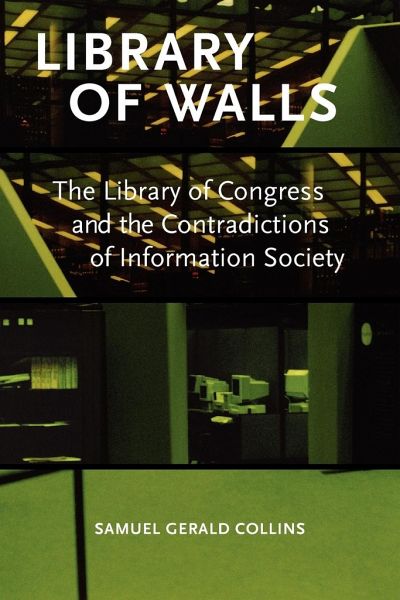
Library of Walls
The Library of Congress and the Contradictions of Information Society
Versandkostenfrei!
Versandfertig in 1-2 Wochen
40,99 €
inkl. MwSt.

PAYBACK Punkte
20 °P sammeln!
In Library of Walls, Samuel Collins engages the heterogeneities of information society at the Library of Congress through ethnographic fieldwork, suggesting that "information society" is best understood at the locus of conflicting modalities imbricating text, space, work and life. During the 1990's, the Library of Congress was beset with challenges to its traditional roles in cataloging and scholarship while at the same time re-inventing itself as a library "without walls." The "order of books" was threatened on several fronts: in the explosive growth of accessions, in the challenges of online...
In Library of Walls, Samuel Collins engages the heterogeneities of information society at the Library of Congress through ethnographic fieldwork, suggesting that "information society" is best understood at the locus of conflicting modalities imbricating text, space, work and life. During the 1990's, the Library of Congress was beset with challenges to its traditional roles in cataloging and scholarship while at the same time re-inventing itself as a library "without walls." The "order of books" was threatened on several fronts: in the explosive growth of accessions, in the challenges of online materials and different container types, and in fundamental disagreements about the role of the Library vis-à-vis the nation. But rather than analyze these as separate etiologies, Collins sees them as the expression of an inherently Janus-faced information society that limits information and forecloses debate even as it multiplies avenues of access. Collins considers multiple sites at the Library-its spaces, its artifacts and organization-as contested sites where varied actors negotiate information, knowledge and nation amidst an institution whose own shifting priorities synecdochally mirror the ambiguities and unease of contemporary society.














